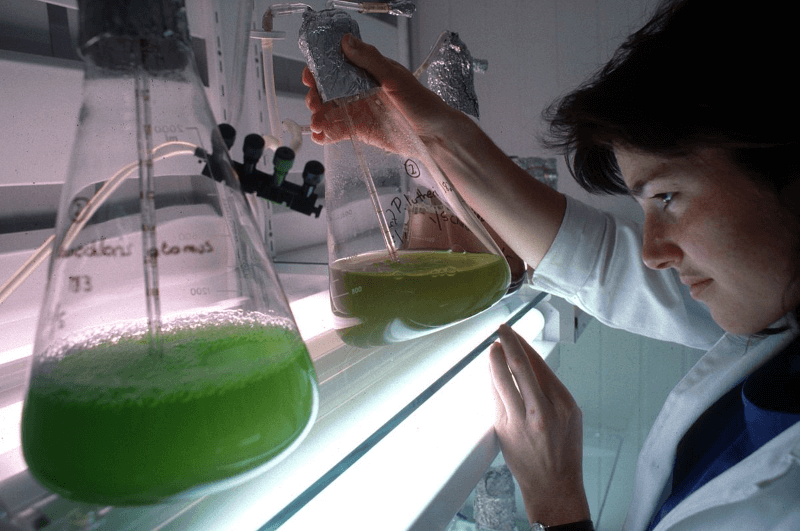Scientists at the University of California, San Diego (UCSD) believe that algae could be a new type of superfood, thanks to its high protein and nutrient content. They present their arguments in a recently published paper in the journal Frontiers in Nutrition, which reviews the current body of scientific knowledge on microalgae – a general term for the thousands of tiny algal species and other photosynthetic organisms, such as cyanobacteria, found in aquatic environments.
“The biggest advantage is the protein production per acre,” [Dr. Stephen] Mayfield noted. “Algae simply dwarf the current gold standard of soybean by at least 10 times, maybe 20 times, more production per acre.”
In addition, some algal species can be grown in brackish or salty water – and, in at least one case, wastewater from a dairy operation – meaning freshwater can be reserved for other needs. Nutritionally, many algal species are rich in vitamins, minerals, and especially macronutrients essential to the human diet, such as amino acids and omega-3 fatty acids.
…
Mayfield said the need for alternative food systems has never been more urgent, as the human population swells, pushing resources and systems to the breaking point. “The only way to avoid a really bleak future is to start transitioning now to a much more sustainable future, and algae as food is one of those transitions that we need to make,” he said.































